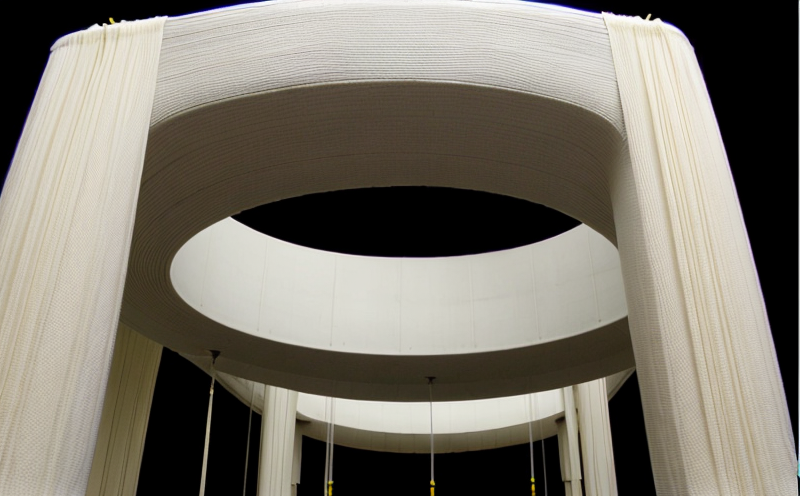Comparison of tensile strength in natural and synthetic fibers
Unlocking the Secrets of Tensile Strength A Comparative Analysis of Natural and Synthetic Fibers
In todays fast-paced textile industry, understanding the tensile strength of fibers is crucial for manufacturers to produce high-quality products that meet customer demands. The use of natural and synthetic fibers has become increasingly prevalent in various applications, from clothing to industrial textiles. However, the decision between these two types of fibers often hinges on their tensile strength a critical property that determines their performance, durability, and lifespan.
At Eurolab, we offer a comprehensive laboratory service that enables businesses to compare the tensile strength of natural and synthetic fibers. This service provides valuable insights into the mechanical properties of fibers, helping manufacturers make informed decisions about material selection, production processes, and product development.
What is Comparison of Tensile Strength in Natural and Synthetic Fibers?
The comparison of tensile strength in natural and synthetic fibers involves a series of laboratory tests designed to evaluate the fibers resistance to breaking or deformation under tension. This analysis typically includes
Tensile testing A controlled force is applied to a fiber sample until it breaks, measuring the maximum stress and strain before failure.
Strain-to-break measurement The percentage of elongation at break is recorded, providing an indication of the fibers flexibility and resistance to stretching.
Youngs modulus calculation This property represents the ratio of tensile stress to tensile strain within the proportional limit, reflecting the fibers stiffness.
Why is Comparison of Tensile Strength in Natural and Synthetic Fibers Essential for Businesses?
The comparison of tensile strength in natural and synthetic fibers offers numerous benefits for businesses across various industries
Informed material selection By understanding the tensile strength of different fibers, manufacturers can choose materials that meet specific requirements, reducing production costs and improving product quality.
Optimized production processes Knowledge of fiber properties enables companies to adjust manufacturing processes, such as weaving or knitting, to optimize fabric performance and minimize waste.
Improved product development Understanding the mechanical behavior of fibers allows designers to create products with enhanced durability, wear resistance, and aesthetic appeal.
Key Benefits of Comparison of Tensile Strength in Natural and Synthetic Fibers
Enhanced material selection Identify the most suitable fiber for your application based on its tensile strength, ensuring optimal performance and efficiency.
Improved product quality By selecting materials with the right balance of tensile strength and flexibility, manufacturers can produce high-quality products that meet customer expectations.
Reduced production costs Optimized manufacturing processes and material selection can lead to significant cost savings and increased productivity.
Increased competitiveness Companies that invest in fiber characterization can differentiate themselves from competitors by offering superior products with enhanced performance characteristics.
Comprehensive Breakdown of Natural and Synthetic Fibers
Natural fibers, such as cotton, wool, and silk, offer unique properties that make them suitable for specific applications. However, their tensile strength is often limited compared to synthetic fibers.
Cotton Good resistance to abrasion and moisture, but relatively low tensile strength (10-20 GPa).
Wool Natural crimp and elasticity provide excellent insulation and comfort, but tensile strength is moderate (15-30 GPa).
Silk High tensile strength (3-5 GPa) and luster make it suitable for high-end textiles.
Synthetic fibers, such as nylon, polyester, and polypropylene, exhibit exceptional mechanical properties due to their molecular structure.
Nylon Excellent resistance to abrasion and chemicals, with moderate tensile strength (4-8 GPa).
Polyester High tensile strength (7-5 GPa) and good resistance to moisture make it a popular choice for outdoor clothing.
Polypropylene Lightweight, corrosion-resistant, and flexible, with moderate tensile strength (9-4 GPa).
QA Frequently Asked Questions about Comparison of Tensile Strength in Natural and Synthetic Fibers
Q1 Why is it essential to compare the tensile strength of natural and synthetic fibers?
A1 Understanding the mechanical properties of fibers enables businesses to make informed decisions about material selection, production processes, and product development, leading to improved product quality and reduced production costs.
Q2 How do you conduct the comparison of tensile strength in natural and synthetic fibers?
A2 Our laboratory service involves a series of tests, including tensile testing, strain-to-break measurement, and Youngs modulus calculation, providing comprehensive insights into fiber properties.
Q3 What are the key benefits of using our comparison of tensile strength in natural and synthetic fibers service?
A3 Our service offers informed material selection, optimized production processes, improved product development, and enhanced competitiveness through better understanding of fiber properties.
Conclusion
The comparison of tensile strength in natural and synthetic fibers is a critical analysis that enables businesses to unlock the secrets of their materials. By investing in our laboratory service at Eurolab, manufacturers can
Make informed decisions about material selection
Optimize production processes for improved efficiency and reduced waste
Develop products with enhanced performance characteristics
Dont miss out on the opportunity to elevate your business by understanding the tensile strength of natural and synthetic fibers. Contact us today to learn more about our comprehensive laboratory service and take the first step towards achieving superior product quality and competitiveness!




